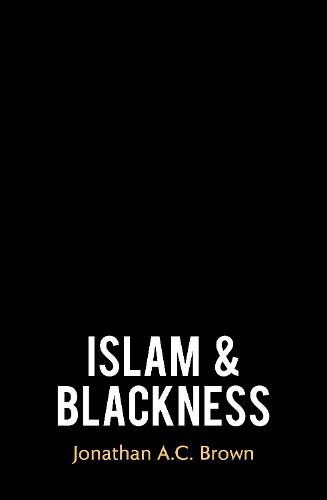Readings Newsletter
Become a Readings Member to make your shopping experience even easier.
Sign in or sign up for free!
You’re not far away from qualifying for FREE standard shipping within Australia
You’ve qualified for FREE standard shipping within Australia
The cart is loading…






It is commonly claimed that Islam is antiblack, even inherently bent on enslaving Africans. Western and African critics alike have contended that antiblack racism is in the faith’s very scriptural foundations and its traditions of law, spirituality and theology. But what is the basis for this?
Bestselling scholar Jonathan A.C. Brown examines Islamic scripture, law, Sufism and history to determine the extent to which this claim is true - and why. Locating the origins of the accusation in the old trope of Barbary enslavement, modern Afrocentrism and conservative politics, he explains how antiblackness arose in the Islamic world and became entangled with normative tradition. From the imagery of ‘blackened faces’ in the Quran to Shariah assessments of Black women as undesirable and the assertion that Islam and Muslims are foreign to Africa, this work provides a comprehensive study of the controversial knot that is Islam and Blackness, and identifies authoritative voices in Islam’s past that are crucial for combatting antiblack racism today.
$9.00 standard shipping within Australia
FREE standard shipping within Australia for orders over $100.00
Express & International shipping calculated at checkout
It is commonly claimed that Islam is antiblack, even inherently bent on enslaving Africans. Western and African critics alike have contended that antiblack racism is in the faith’s very scriptural foundations and its traditions of law, spirituality and theology. But what is the basis for this?
Bestselling scholar Jonathan A.C. Brown examines Islamic scripture, law, Sufism and history to determine the extent to which this claim is true - and why. Locating the origins of the accusation in the old trope of Barbary enslavement, modern Afrocentrism and conservative politics, he explains how antiblackness arose in the Islamic world and became entangled with normative tradition. From the imagery of ‘blackened faces’ in the Quran to Shariah assessments of Black women as undesirable and the assertion that Islam and Muslims are foreign to Africa, this work provides a comprehensive study of the controversial knot that is Islam and Blackness, and identifies authoritative voices in Islam’s past that are crucial for combatting antiblack racism today.